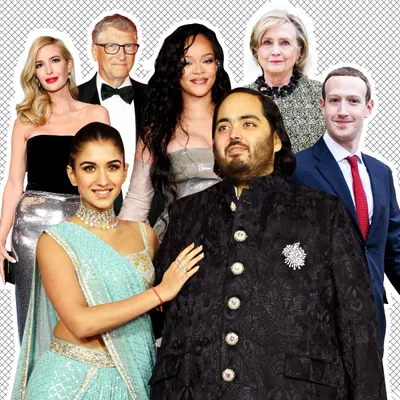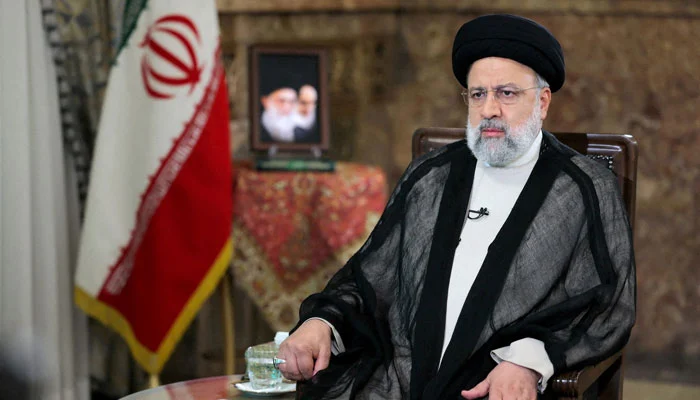Prologue to Mukesh Ambani’s child’s pre-wedding festivity
Step into the amazing universe of high-profile festivities and worldwide interest as we jump into the new pre-wedding party of Mukesh Ambani’s child.
From lavish stylistic layout to Elite guests, this occasion had everything – except what caused a social media power outage in Pakistan during this star-studded undertaking? How about we reveal the mystery behind why Facebook accounts suddenly lapsed for users in Pakistan after this fantastic celebration?
The world-renowned guests who attended the event
The pre-wedding festivity of Mukesh Ambani’s child was a ritzy issue, with world-famous visitors gracing the event with their presence. From top Bollywood famous people to global dignitaries, the list of people to attend peruses like a’s who of the overall most excellent. Hollywood Geniuses, for example, Beyoncé and Priyanka Chopra added style to the celebrations, while business moguls like Bill Doors and Warren Buffet conveyed their radiation of progress to the event. The social occasion was truly an accord from different enterprises and foundations. It was captivating to see such different characters get together under one rooftop to recognize love and fortitude. The sheer size of capacity and impact in support made this event a wedding festivity as well as a systems administration opportunity, unlike some others. It was an exceptional get-together that displayed the power and reach of connections in high society.
Social Media Platforms Banned in Pakistan during the Event
During the limited pre-wedding festivity of Mukesh Ambani’s child, online entertainment stages went up against an unexpected blacklist in Pakistan. As the world-renowned visitors amassed to respect the event, Pakistani residents found themselves unequipped for getting to notable destinations like Facebook. The unexpected limitation left many confused and baffled, igniting banters on a chance for articulation and government control. With the modernized age playing a huge work in the manner we interface and offer data, impeding virtual entertainment raises worries about control and straightforwardness. While some battle for public safety explanations for the blacklist, others question whether such measures encroach upon fundamental privileges. As conversations keep on spreading out on the web and disconnected with respect to this disputable move by the Pakistani government, it stays obfuscated how long these limitations will stay set up. Remain tuned for refreshes on this advancing circumstance as individuals all around the planet screen its impact on correspondence channels inside Pakistan.
Reasons behind the ban by the Pakistani government
The Pakistani government’s choice to blacklist online entertainment stages during Mukesh Ambani’s child’s pre-wedding festivity caused a commotion around the world. Many were deserted scrutinizing the purposes behind such an uncommon measure. One potential clarification could be worries over security and assurance issues during the high-profile event, with specialists expecting to forestall any reasonable dangers or unapproved admittance to delicate data. Furthermore, the public authority might have expected to keep up with severe command over the movement of data and pictures from the event to avoid any awful openness or contentions that could emerge via online entertainment. Also, limitations via virtual entertainment use in Pakistan are typical, as the public authority frequently falls back on such measures in the midst of political distress or when faced with difficulties associated with public safety. While some could consider this transition to be an encroachment on the option to talk openly of discourse and articulation, others fight that it was essential for keeping up with demands and defending public interests during a huge classified event.
Public reaction and criticism towards the ban
The limitation via virtual entertainment stages in Pakistan during Mukesh Ambani’s child’s pre-wedding festivity started a surge of public response and analysis the nation over. Various residents communicated their dissatisfaction at being not ready to get to notable sites like Facebook, which they use for correspondence and systems administration. Some considered the public power’s activities to be an encroachment to their right side to talk openly and articulate, addressing why such uncommon measures were taken for a private event. Via online entertainment stages that were as yet open, clients voiced their discontent with hashtags denouncing the blacklist. Images and sarcastic posts taunting the circumstance promptly turned into a web sensation, featuring the ridiculousness of hindering entire sites in light of a solitary event. Pundits battled that this move set a risky trend for future limitations on web-based content and data partaking in Pakistan. As strains heightened on the web, calls for straightforwardness from the public authority with respect to the dynamic interaction behind the blacklist became more grounded. The public mentioned liability and clearness on how such choices are made and executed without meeting or advance notice.
Comparison to previous bans on social media in Pakistan
Previously, Pakistan has executed restrictions via online entertainment stages during delicate occasions or for the sake of security. These limitations have frequently started banters about the chance of articulation and restriction in the country. The choice to blacklist Facebook after Mukesh Ambani’s child’s pre-wedding festivity isn’t when Pakistan first has taken such measures. Comparable moves have been made in the past to control the spread of specific substances or keep up with public solicitations. Past restrictions via online entertainment in Pakistan have stood up to analysis from both homegrown and worldwide networks. Many fight that such limitations encroach upon people’s freedoms to get to data and articulate their thoughts straightforwardly on the web. It is not yet clear what this most recent blacklist will mean for discussions around web open doors and the informal law of mechanized spaces in Pakistan. The correlation with past occurrences reveals insight into a repetitive illustration of web-based entertainment oversight in the country.
Possible impact on freedom of speech and expression in the country
The forbiddance via virtual entertainment stages during Mukesh Ambani’s child’s pre-wedding festivity in Pakistan has raised worries about the conceivable impact on the option to talk openly of discourse and articulation in the country. Online entertainment plays an urgent work in empowering people to voice their perspectives, take part in conversations, and put themselves out there straightforwardly. By confining admittance to these stages, the Pakistani government is truly restricting the limit of its residents to pass on and share data. The option to talk openly of discourse is a focal right that ought to be gotten and kept up with in any evenhanded society. Right when states force prohibitions via online entertainment, it can have sweeping ramifications for normal freedoms and a vote-based framework. Residents rely upon these stages to remain informed, associate with others, and consider people with great influence mindful. The blacklist ruins correspondence as well as smothers imaginativeness, development, and variety of thought. It creates a chilling effect where people may self-control out of fear of retaliation or restriction. Over the long haul, such limitations could break down trust in establishments and sabotage greater part rule values. Legislatures need to strike a congruity between public safety concerns and fundamental privileges, for example, the option to talk openly of discourse. The occasions encompassing the pre-wedding festivities include the delicate strain between managing the web content and saving individual freedoms.
Conclusion: Is it justified for a government to restrict access to social
Taking into account the new denial via web-based entertainment stages during Mukesh Ambani’s child’s pre-wedding festivity in Pakistan, the inquiry emerges: is it supported for an organization to confine admittance to virtual entertainment? While state run administrations could fight that such limitations are important for the sake of security or to keep up with social solicitations, many view these activities as encroaching upon the option to talk unreservedly of discourse and articulation. The Pakistani government’s choice to prevent Facebook explicitly has started conversation and analysis. Some acknowledge that such boycotts are an abundance of power and removed general society doing great to get to data and give it transparently. Others fight that in specific conditions, fleeting limitations may be important to forestall deception or agitation. Finding a concordance between public safety concerns and individual opportunities is essential. State run administrations should warily consider the ramifications of limiting admittance to virtual entertainment stages like Facebook, gauging the normal advantages against the impact on residents’ privileges. It stays fundamental for specialists to straightforwardly bestow their purposes behind such activities and guarantee liability in maintaining pivotal freedoms while tending to real worries about web-based content.










Thanks for sharing. I read many of your blog posts, cool, your blog is very good.
Thank you for your sharing. I am worried that I lack creative ideas. It is your article that makes me full of hope. Thank you. But, I have a question, can you help me?